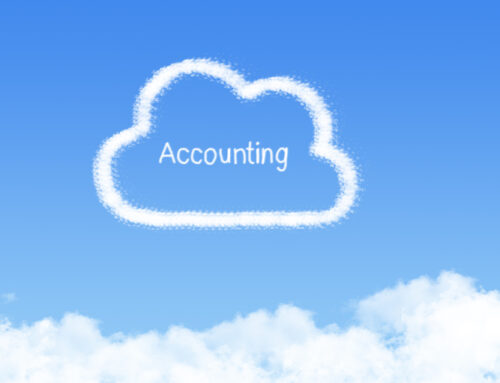It’s important to see your accountant more than once a year—during tax season. The health of your business could depend on it. Accountants help with so much more than filing your taxes, yet businesses rarely seem to take advantage of this.
Not only will you have a better idea of how your business is doing financially, but when you have regular business checkups with your accountant, you also have the ability to make necessary changes to improve business processes, increase profit, and save tax.
There’s No Time Like the Present to See Your Accountant
It’s really difficult to plan for tax payments (or save tax) retroactively. Real time is definitely the way to go when it comes to keeping tabs on your business. If you wait the full year between tax seasons to see your accountant, it may be too late to tax plan properly.
There are certain tax planning strategies (like paying wages to shareholders) that can save tax. When it comes to taxes, everything has a deadline. If you miss the deadline to make payroll remittances, that tax planning opportunity is lost too.
So, don’t wait until next tax season to contact your accountant. Schedule an appointment to touch base, even if you think nothing’s new. Tax laws change all the time and it’s your accountant’s job to stay informed. You may discover a new tax credit you’re eligible for that you wouldn’t have known about if you hadn’t made the call to your accountant.
Get Help When You Need It
At Virtual Heights Accounting we use Slack to keep open communication lines with our monthly clients. Slack is a digital communication tool that allows us to confidentially message with each of our clients by setting them up with their own channel.
Slack is easy to use from mobile or desktop and allows us to answer your questions as soon as possible without you having to set up a meeting. A major advantage of real-time communication like Slack is never having to worry about missing a deadline or forgetting to mention a business change that could impact your taxes.
Know How Your Business is Doing Before It’s Too Late
If you don’t know how your business is doing, how can you make improvements or plan for large payments like taxes?
For clients we don’t work with on a monthly basis, we schedule bi-annual checkups. This allows us to touch base and prepare for any tax planning that may be necessary. This also gives the business owner a chance to inform us of any changes in the business.
Far too often, clients put off their bookkeeping all year then scramble like mad at tax season to get their records in order. They rush to get their accounts up to date so we can file their taxes, but it’s too late to do any proactive tax planning. Had they kept their bookkeeping current (or had us do it for them) they could have saved themselves a lot of money and stress.
Keeping up-to-date bookkeeping records helps you plan for purchases (or tax payments) so you can better manage your cash flow. It’s also nice to have a little warning if you’re going to have a large tax bill.
Would you rather find out you owe $12,000 when your corporate tax return is due, or six months into the year when you can budget for that $12,000 by putting a portion aside each month?
Remove Unnecessary Tax-Time Stress
Not only does frantically entering your bookkeeping at the last minute eliminate any potential tax planning available to your business, but it also causes you a lot of unnecessary stress. Wouldn’t it feel better going into tax season already having an idea of how much you will owe?
Remember if you’re incorporated, tax season isn’t just March and April. You have six months after your corporate year-end to file your company tax return. This sounds like lots of time, but if you owe tax it must be paid within two or three months of the year-end to avoid interest charges.
Some types of businesses experience predictable sales patterns and cycles. This information can be used to estimate your tax payments before you file your tax returns. The Canada Revenue Agency does a version of this when they calculate the instalments they want you to pay for next year’s taxes.
Even if things change dramatically in your business, your accountant can estimate your taxes by using the information available at the time then projecting business income over the full year.
For example, if your business is showing a steady increase in sales and you’re only six months into the year, your accountant can estimate the remaining six months of sales. They will use this information (along with estimated expenses) to calculate approximate taxes for the year and determine if you need to increase your instalment amounts.
Keep Your Accountant Informed
It’s hard to provide the best service when we don’t know all the facts. When something changes in your business (no matter how small you may think it is) be sure and let your accountant know. Starting a new product line or opening a second location will impact your business in major ways. It’s important to monitor changes so losses can be mitigated and successes can be solidified.
If your accountant knows what’s going on with your business, they are prepared to help you in the best way possible. Even if you think the change isn’t major, like switching banks, it doesn’t hurt to let your accountant know just in case. Many accountants now use flat fee billing, so an extra meeting won’t increase your bill.
When you see your accountant more than once a year, you can prepare yourself for what’s coming. You give yourself (and your accountant) the opportunity to plan for the future. If you’d like to be better prepared for your future in business, contact us to schedule a free consultation.






